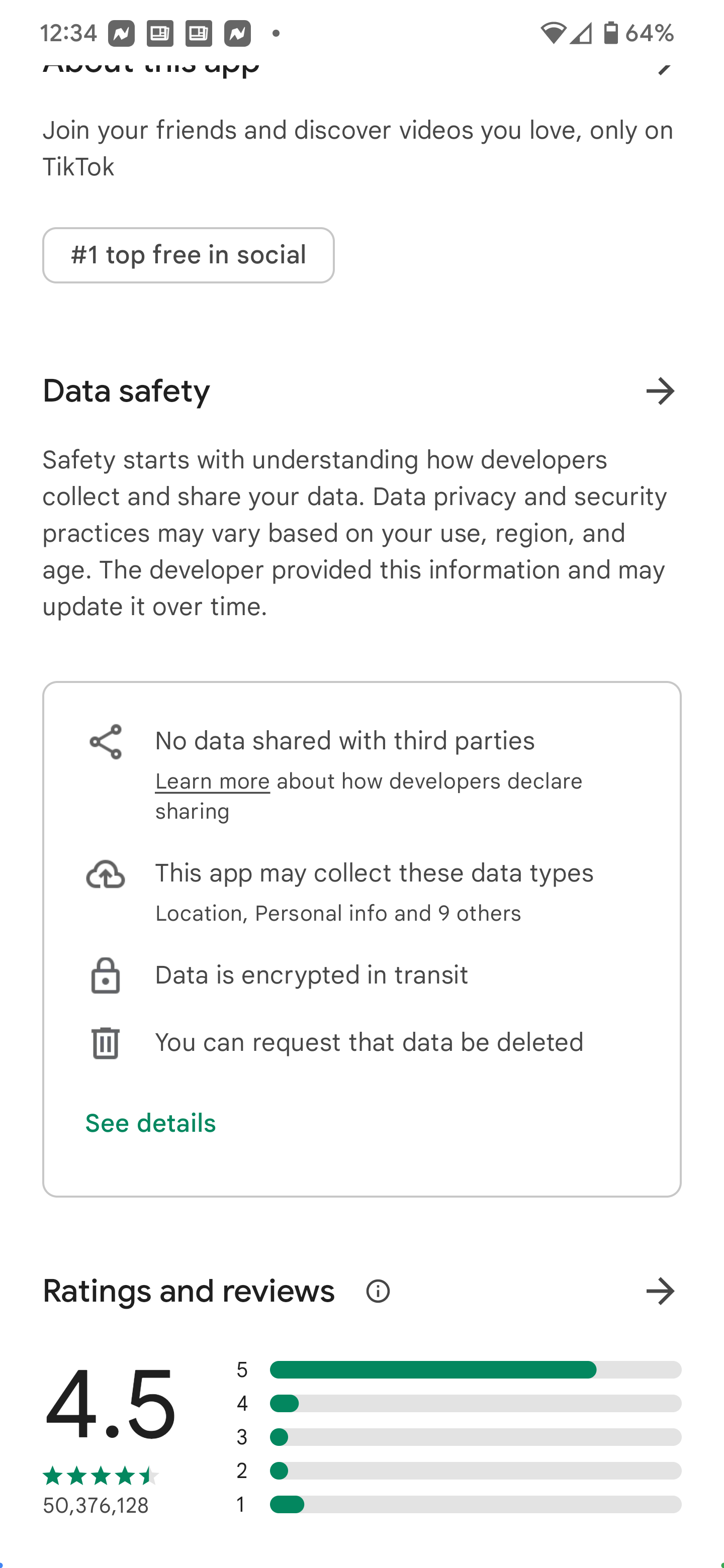Google demands Android app developers turn over Data safety info by July 20th
Google is replacing the Android app’s permissions list with the new Data safety feature in the Play Store
For example, we opened the TikTok app, and under the Data safety heading it says, “Safety starts with understanding how developers collect and share your data. Data privacy and security practices may vary based on your use, region, and age. The developer provided this information and may update it over time.” TikTok’s Data safety listing says that the app does not share data with third parties, encrypts data in transit, and allows you to request that data be deleted.

The Data safety listing in the Google Play Store for TikTok
On the other hand, the Data safety listing does note that the app collects Location, Personal info, and 9 other different types of data. If this bothers you, you might decide not to install TikTok or uninstall it if you’ve already added the app to your phone.
Android users will need to put their faith in both app developers and Google
This is how Google explains the new Data safety listing to Android app developers: “You alone are responsible for making complete and accurate declarations in your app’s store listing on Google Play. Google Play reviews apps across all policy requirements; however, we cannot make determinations on behalf of the developers of how they handle user data. Only you possess all the information required to complete the Data safety form. When Google becomes aware of a discrepancy between your app behavior and your declaration, we may take appropriate action, including enforcement action.”
The question then becomes not only can you trust an app’s developer to pass along to Google all of the personal and private data that an app collects, but you also have to ask yourself whether you believe that Google can properly police the new Data safety listing. Considering that we are always writing about some form of Android malware that has somehow made it through Google’s scanning, that is a fair question to ask.
The bottom line is that whether you are installing Android or iOS apps, you do have a way to see how much of your personal data is exposed. Can we trust these lists since they come from the app developers themselves? With Google replacing app permissions with Data safety listings, iOS and Android users have no alternative.
For all the latest Technology News Click Here
For the latest news and updates, follow us on Google News.

